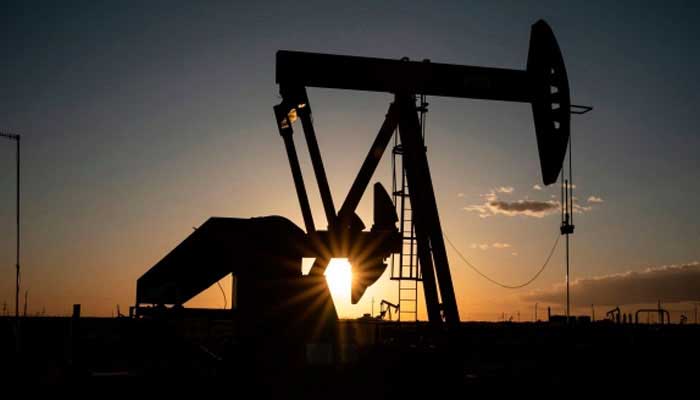Tariff protection likely to raise MS, HSD prices
KARACHI: Tariff protection incentive given to the local refineries could push up the price of motor gasoline (MS) and high-speed diesel (HSD) by Rs3/litre, indicated the summary of the Petroleum Division on the new refining policy.
The Petroleum Division summary on Pakistan Refining Policy 2023 has been prepared for the consideration of the Cabinet Committee on Energy, scheduled for next week.
The copy of the summary available with The News said that by granting the incentive tariff protection (equivalent to incremental custom duty on MS and HSD at the rate of 10 percent and 25 percent respectively), the consumer price of both products would be raised by Rs3/litre; however, it could be minimised by optimal utilisation of white oil pipeline.
The official document stated that in October 1997, the government introduced Petroleum Policy 1997. It was amended in 2002, replacing the minimum 10 percent guaranteed rate of return for refineries with a tariff protection formula i.e deemed duty of 10 percent on HSD, 6 percent on SKO, LDO and JP-4. However, in 2008, the tariff protection was reduced to 7.5 percent on HSD only.
“The tariff protection couldn’t attract investment in the sector in the form of new refinery or upgradation of existing refineries and requires to be improved,” the summary stated.
The summary said that the establishment of a new refinery requires considerable lead time and huge investment for which a policy along with attractive incentives needs to be in place. This, it pointed out was under process for finalisation, and would be placed before the Economic Coordination Committee of the cabinet. In case of existing refineries, necessary changes have been incorporated into the policy after deliberations with the refineries and government bodies.
It said that indigenous and imported crude was refined by five refineries, which have been periodically upgraded to meet the fuel specifications.
However, the government has been asking the refineries to further upgrade their plants by producing Euro-V specification fuels and minimising production of furnace oil, which required capital investment of around $4 to $4.5 billion, the summary stated.
It mentioned that the refineries have to arrange the funding from their own resources and borrowing from local lenders at commercial terms and have to improve their balance sheets to obtain funding.
According to the summary, local refineries need the government’s fiscal support in view of their last five year’s profit/loss position to improve the financial position for upgradation purpose.
In case of no intervention, the summary stated, the local refining sector is at risk of collapse and shutdown and in such case, the domestic crude oil production of approximately 70,000 barrels per day would have to be exported. Whereas, the import of multiple petroleum products instead of a single product i.e crude oil, will further complicate the growing congestion at our ports.
“Such a scenario might discourage investment in exploration of oil and gas sector apart from creating vulnerability in the supply chain of strategic fuels and placing an additional burden on our balance of payments,” it noted.
-
 Gracie Abrams Follows 'Kylie Jenner Playbook' With Paul Mescal Romance
Gracie Abrams Follows 'Kylie Jenner Playbook' With Paul Mescal Romance -
 Dua Lipa Shares 'Love Letter' With New Boyfriend After Emily Ratajkowski Confirms Romance With Her Previous Beau
Dua Lipa Shares 'Love Letter' With New Boyfriend After Emily Ratajkowski Confirms Romance With Her Previous Beau -
 Brazilian Beauty Influencer Passes Away After Suffering 'medical Emergency'
Brazilian Beauty Influencer Passes Away After Suffering 'medical Emergency' -
 Sarah Ferguson Turns Into A Bulldozer With Beatrice, Eugenie: ‘Help Me Out’
Sarah Ferguson Turns Into A Bulldozer With Beatrice, Eugenie: ‘Help Me Out’ -
 Australian Prime Minister's Letter Against Andrew Mountbatten-Windsor Made Public
Australian Prime Minister's Letter Against Andrew Mountbatten-Windsor Made Public -
 'Project Runway' Alum Tim Gunn Reveals Why He's Been Celibate For 43 Years
'Project Runway' Alum Tim Gunn Reveals Why He's Been Celibate For 43 Years -
 Delroy Lindo Breaks Silence On John Davidson's Racial Slur Shock At 2026 BAFTA: 'We Did What We Had To Do'
Delroy Lindo Breaks Silence On John Davidson's Racial Slur Shock At 2026 BAFTA: 'We Did What We Had To Do' -
 King Charles Prepares Next Move As Andrew Shows No Remorse
King Charles Prepares Next Move As Andrew Shows No Remorse -
 Epstein's Brother Invited To Discuss Royal Family's Future After Andrew's Arrest, On Popular Show
Epstein's Brother Invited To Discuss Royal Family's Future After Andrew's Arrest, On Popular Show -
 BAFTA Winner Robert Aramayo Defends Director's Racial Slurs Amid Tics
BAFTA Winner Robert Aramayo Defends Director's Racial Slurs Amid Tics -
 Prince William, Kate Middleton’s Troubles Take On A New Face: ‘They’re Steeling Themselves’
Prince William, Kate Middleton’s Troubles Take On A New Face: ‘They’re Steeling Themselves’ -
 'Coronation Street' Star Sally Ann Matthews Finally Reveals Why She Quit ITV Soap
'Coronation Street' Star Sally Ann Matthews Finally Reveals Why She Quit ITV Soap -
 Prince Andrew's Major Sacrifice For Princess Beatrice, Eugenie Royal Titles Revealed
Prince Andrew's Major Sacrifice For Princess Beatrice, Eugenie Royal Titles Revealed -
 ICE Agent Misfired Bullet Into Minnesota Hotel’s Guest Room
ICE Agent Misfired Bullet Into Minnesota Hotel’s Guest Room -
 Andrew Mountbatten-Windsor, Fergie Still Counting On Each Other? Deets
Andrew Mountbatten-Windsor, Fergie Still Counting On Each Other? Deets -
 Piers Morgan Reacts To Photo With Ghislaine Maxwell
Piers Morgan Reacts To Photo With Ghislaine Maxwell




